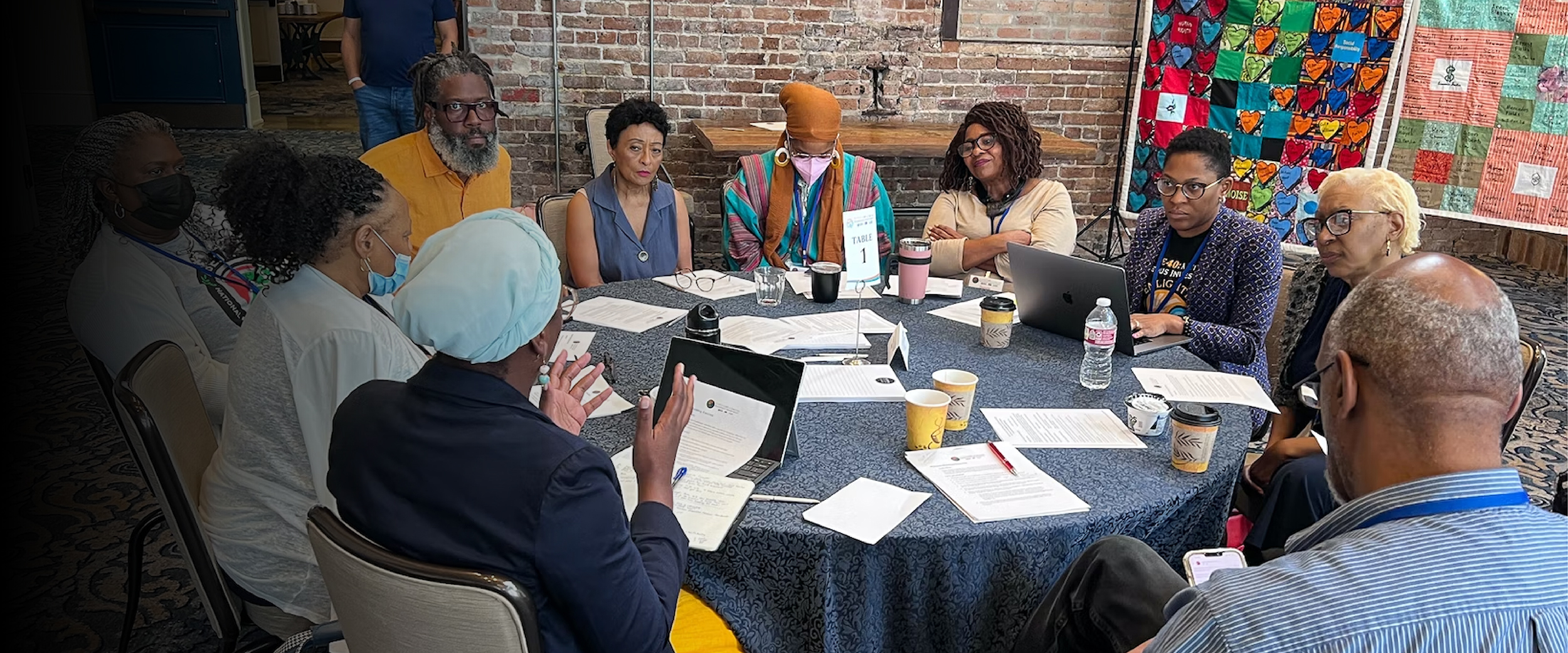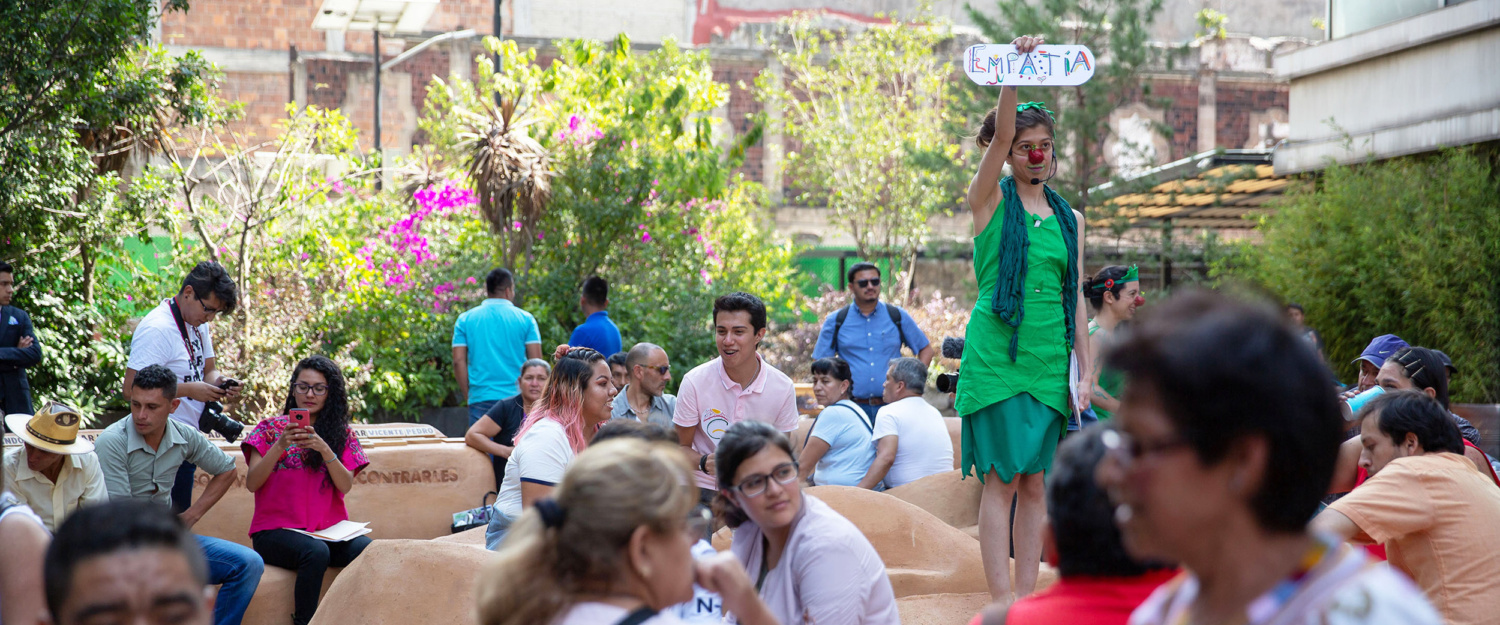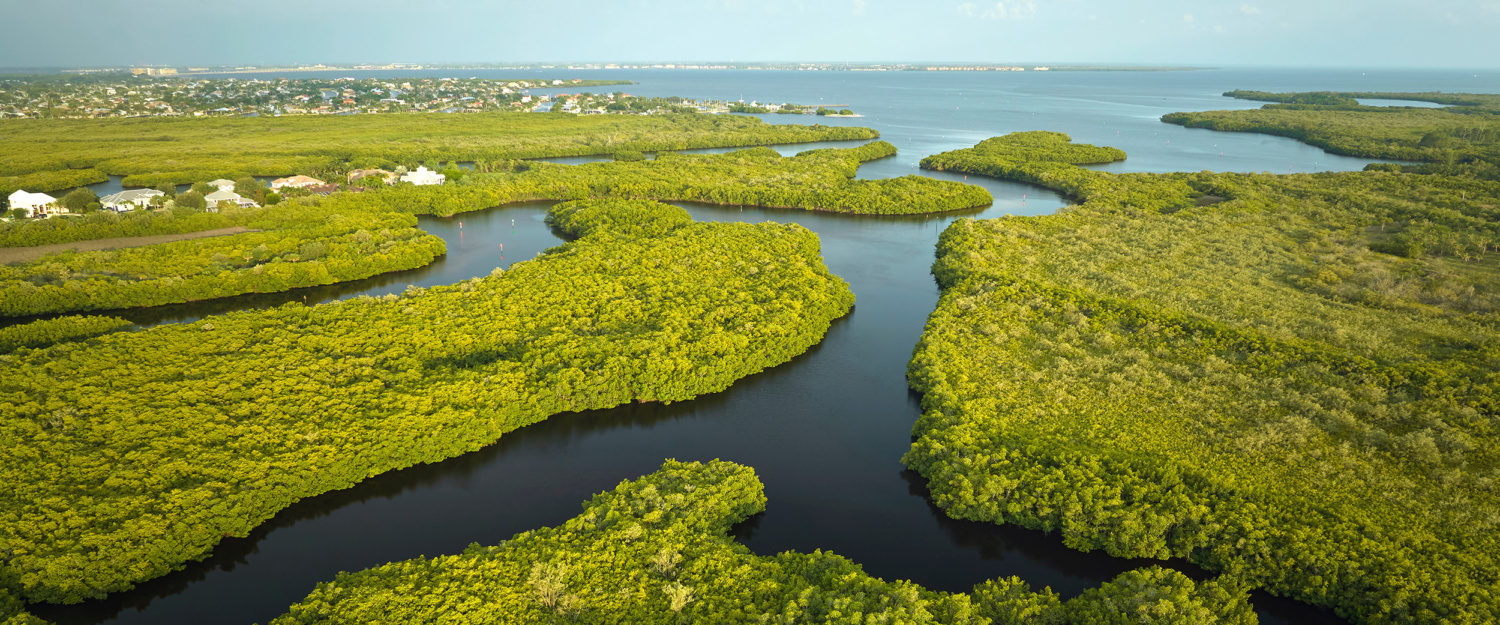
Accelerating Community Capacity to Secure Federal Funding
Supporting the DSCEJ Justice40: A Time for Righteous Investment Initiative, and Activating the Thriving Community Technical Assistance Center (TCTAC)
What was the challenge?
As part of a significant Bezos Earth Fund investment, the Deep South Center for Environmental Justice (DSCEJ) set out to build and deepen the capacity of community-based organizations (primarily in the Gulf Coast region) to secure Justice40 and Bipartisan Infrastructure Law, as well as Inflation Reduction Act funding. Community-based groups usually do not interface directly with the federal government to compete for funds, but that tide changed with the passage of the Bi-partisan Infrastructure law and the Inflation Reduction Act as community groups are working to take advantage of this opportunity. Federal funding is notoriously cumbersome to apply for and infrastructure investments have time and time again burdened BIPOC communities with adverse environmental impacts, while bringing benefits to other communities. DSCEJ is committed to changing this paradigm.
What did we do?
MG co-created a road map—via a series of eight steps/stages—that offered guidance to community-based organizations to help position their community priorities for federal, state, and local investments. The road map concept was designed to give organizations a reference point to identify where to focus time and/or energy to build momentum for their project, and where they could be a resource for other community-based organizations. For those organizations earlier on in their journey, the road map also highlighted the things that community-based organizations needed to do to get started on the road.
Through convenings and customizable tools our team worked in close partnership with the DSCEJ to facilitate deeper learning on the stages of the road map that organizations in their network expressed the greatest need for. Each of the sessions, templates, and office hours were designed to help organizations incorporate their unique community context into their strategies and storytelling.
In August of 2023, as part of the culmination of Justice40 capacity-building efforts to date, Metropolitan Group worked closely with the DSCEJ to develop and deliver an in-person convening that brought together 240 community members, staff, speakers, and presenters—representing 80 community-based organizations, representing 18 states, seven federal agencies, and several philanthropic foundations.
To inform the convening program we gathered feedback from community leaders to understand what kind of capacity building would be most helpful. We used those insights to shape every facet of the convening to meet community leaders where they were and with what they most needed. This included experts to find and navigate funding processes; dedicated time to unpack sessions and learn from peers (by lifting up case study examples of organizations who excelled at one stage of the road map or another); support with strategies to build relationships with foundations, as well as state, federal, and local government stakeholders; and tools to powerfully make the case for their projects.
One particularly powerful element of the convening was in the form of one-on-one office hours that gave community organizations an opportunity to talk with federal agency leaders charged with delivering on Justice40 commitments for their respective agency, philanthropic leaders, data and grant writing experts, MG team members, and other consultant partners about how to best position and advance their community priorities. The high-touch nature of the office hours was exceptionally impactful for community groups because they were not only heard, but given the opportunity to get specific direction from decision-makers and expert navigators.
What happened?
A few highlights from attendees at the convening:
- 96% gained new skills to identify available funding resources.
- 94% built relationships with organizations that were further along in their journey to secure funding and can serve as a resource or point of inspiration for their work.
- 84% were able to build relationships with relevant federal agencies and/or foundations with aligned focus areas.
As important as these data are, so too is the fact that federal agencies and philanthropic leaders who participated (and others who learned of the opportunity afterward) are now eager to deepen relationships and be an ongoing resource to community organizations as they seek Justice40 investments. This potential for repair, and to meaningfully right long-standing historic wrongs with new federal investments, gives us hope for what is possible as the work of the DSCEJ continues.
The DSCEJ Justice40 was very successful in mobilizing community-based groups addressing environmental threats across the Gulf Coast and Southeast regions. The strong foundation established through this work allowed the DSCEJ to compete for and win the award to serve as the EPA Regions 4 and 6 Thriving Communities Technical Assistance Centers (TCTACs).
In addition to the capacity-building efforts aimed at frontline communities, MG played a central strategic counsel role to DSCEJ leadership in the wake of a $13 million investment from EPA and DOE to launch one of 17 Thriving Communities Technical Assistance Centers (TCTACs), spanning two EPA regions (Region 4 and 6) and designed to serve community organizations in 13 states. Our team supported the DSCEJ team through strategic planning to help DSCEJ prepare to scale their staffing, operations, and infrastructure to launch their TCTAC in April 2024. We remain active partners supporting the launch of the Community Investment and Recovery Center (CIRC) Training Institute (recently begun with an inaugural class of 50 organizations with an ultimate capacity of more than 250) and leading strategic communication to both external stakeholders and engaged CBOs themselves.


